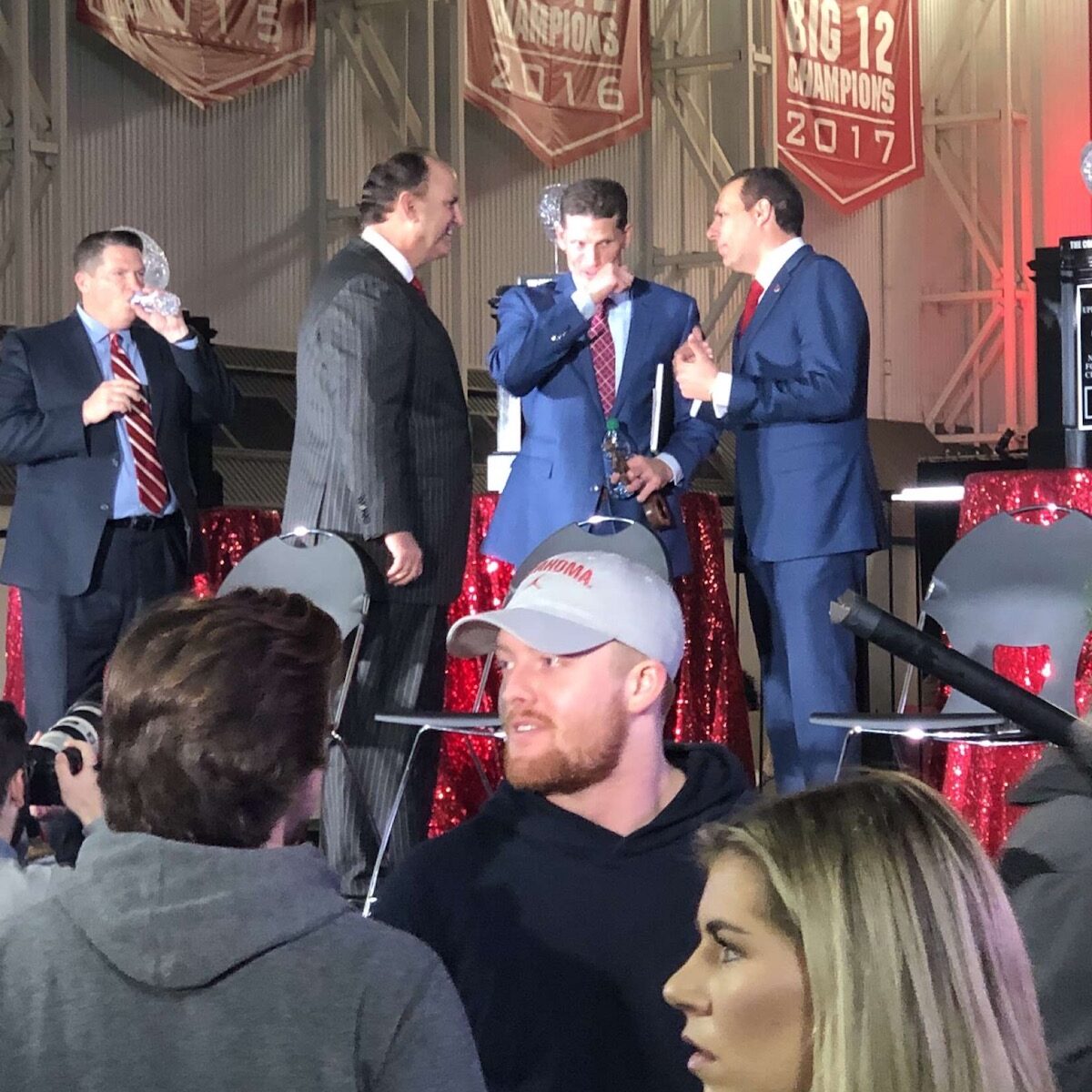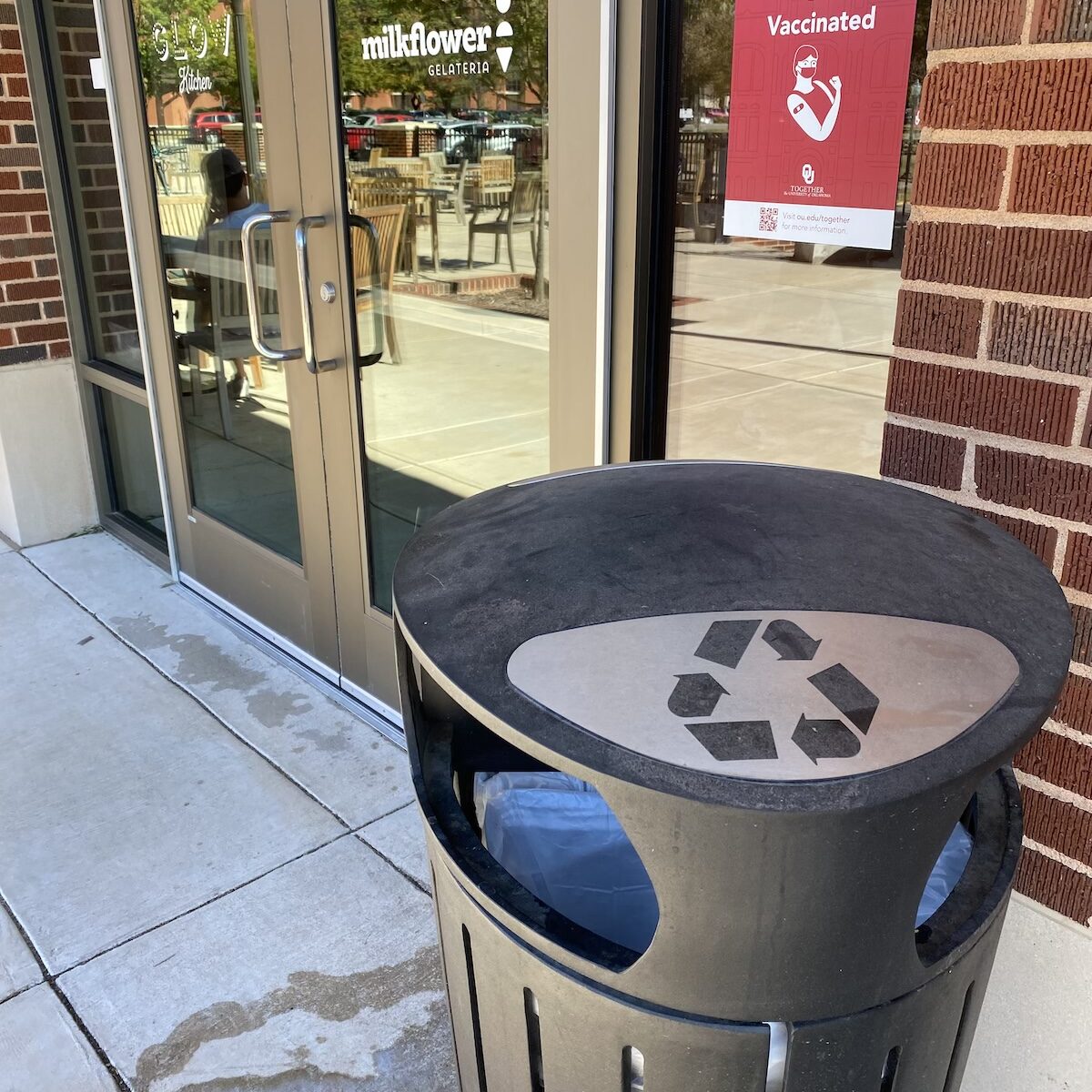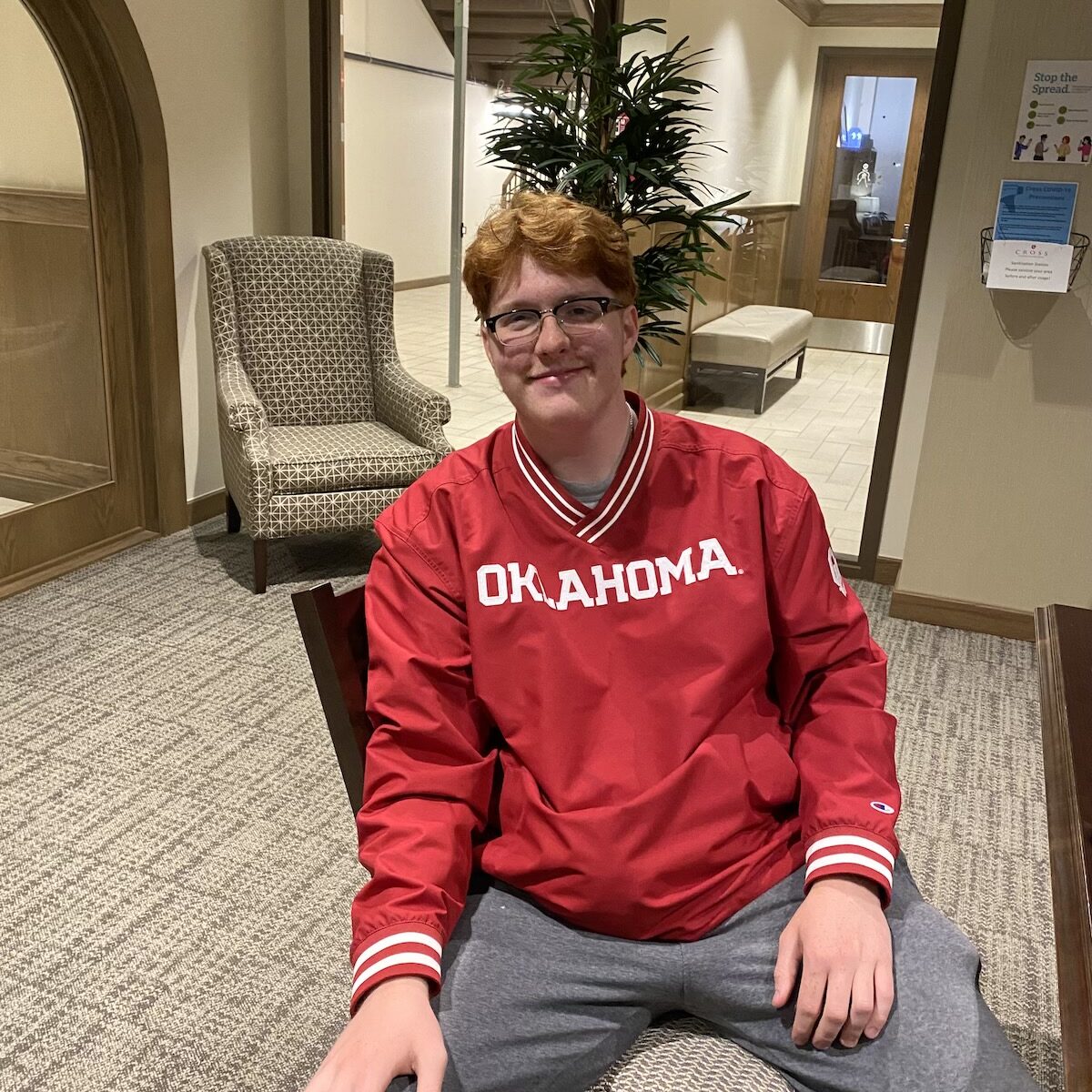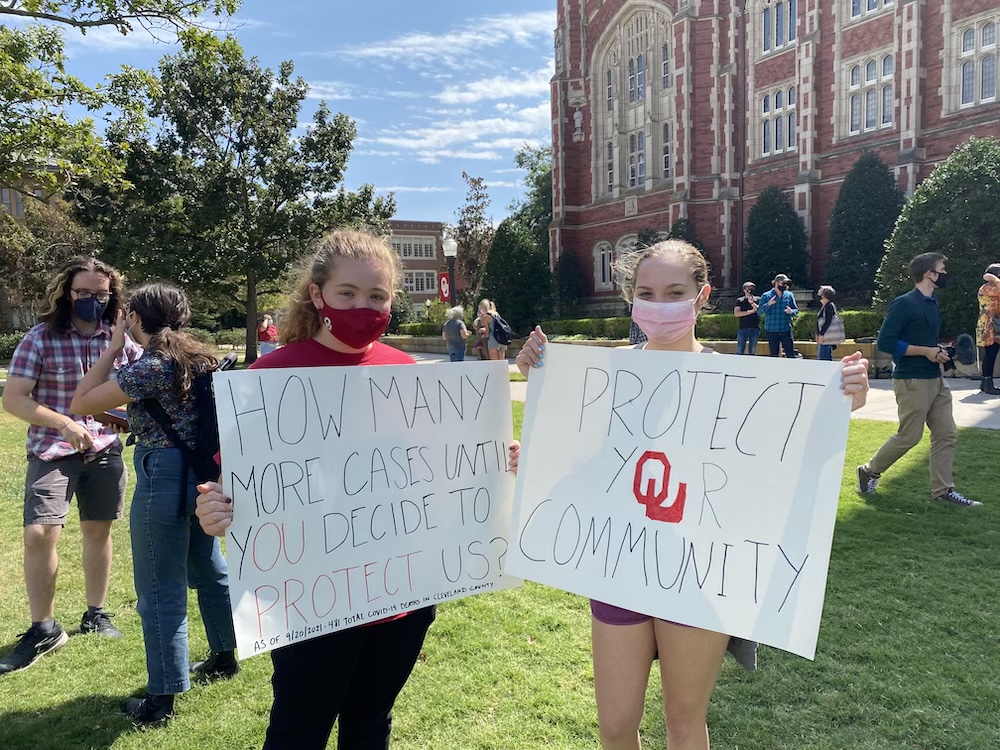When OU’s football team faced the drama of losing a head coach and several key players right after a bedlam loss, finals seemed like a welcome distraction. Now that dead week is here, however, football has sparked new excitement and new hope to boost campus morale. On Sunday night, the new head coach of the football team, Brent Venables, arrived in Norman by plane. Bright and early Monday morning, the university hosted a press conference to welcome Coach Venables. Students were invited, and those who were lucky enough to escape the dead week responsibilities of class, projects, and studying were able to witness the exciting event.
Clayton Chiariello spoke with me about the event.
“It started off really really slow,” he admitted. However, when the band started to play, the energy in the room grew.
“It started getting crazy, and they showed this video of Bob Stoops…then the new coach walked in, and everyone went crazy.”
Bob Stoops may not have been there in person, but quarterback Caleb Williams was, which is very encouraging to those who have been worrying that he, too, might decide to end his time at the University of Oklahoma. The loss of Lincoln Riley was one thing, but losing players and commits was also disheartening.
Clayton said losing wide receiver Jadon Haselwood hurt the most.
However, Coach Venables came prepared to usher in some much-needed joy just in time for the holidays.
“He shot a little cannon of confetti,” Clayton described. “And then the fire went off.”
Yes, flames shot out of the stage to welcome the new coach. We can always count on OU football for dramatic theatrics.
Clayton is confident that Coach Venables is qualified for the position.
“Nine years with Oklahoma, three national championships, eight championship appearances,” Clayton listed. “Never had a losing season as defensive coordinator.”
Clayton described the “people first” mentality that Venables discussed in his speech.
Still, Clayton acknowledged the transition.
“He’s going to create a different culture.”
The OU team has long been known for their offense, but Venables is expected to bring an emphasis on defense.
However, as Clayton pointed out, “he has a lot of alumni backing him.”
Hopefully this, along with the support of Bob Stoops, will help ease the transition.
“[Bob Stoops has been] pivotal in helping everyone maintain confidence in the team,” Clayton said. Now the torch has officially been passed. With the Stoops stamp of approval, the University of Oklahoma is proud to welcome Brent Venables back into the Sooner family.
Photo Credit: Clayton Chiariello






